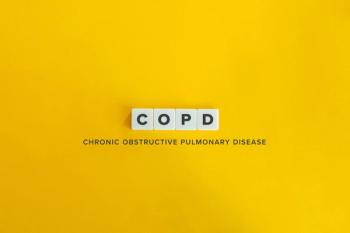
OTC Considerations for COVID-19
Many individuals have been asking if they can take things at home, such as vitamins and OTC medications, to decrease their risk of contracting the virus or to self-treat themselves
As the world rolls out vaccination programs for COVID-19, experts caution that everyone must continue to practice personal protective measures through at least the end of 2021. The best evidence continues to support these 3 basic practices: mask-wearing, frequent hand washing, and social distancing.1,2 However, a healthy lifestyle may be just as important in reducing the risk of COVID-19. Beyond these common measures, many individuals have been asking if they can take things at home, such as vitamins and OTC medications, to decrease their risk of contracting the virus or to self-treat themselves. Preliminary data suggest that OTC products such as antipyretics and pain relievers, the supplement quercetin, vitamin C, vitamin D, and zinc may actually be beneficial in treating mild COVID-19.1 While this early data may be promising, it is important to understand that there is not enough information to recommend for or against these alternative therapies, but there are many ongoing clinical trials and new information comes out every day.1,6
Very few medications are recommended in the outpatient setting for the treatment of COVID-19. The World Health Organization does, however, recommend that patients with mild COVID-19 use symptomatic treatment such as antipyretics for fever and pain, adequate nutrition, and appropriate rehydration.2 Some clinicians have suggested the use of acetaminophen rather than ibuprofen for symptomatic treatment due to concerns that anti-inflammatory medications may worsen disease; however, the FDA reports there is no scientific evidence associating ibuprofen or other nonsteroidal anti-inflammatory drugs (NSAIDs) with the worsening of COVID-19.7,8 Some patients depend on these medications to treat other medical conditions and it is recommended that they continue therapy amid the pandemic.6 Alternatively, caution should be taken in patients with hypertension as NSAIDs and pain relievers may increase blood pressure.
With the treatment of mild COVID-19 limited to symptom management, patients may reach for other OTC medications to alleviate their symptoms such as cough, congestion, or runny nose accompanying a COVID-19 infection.1 Cough suppressants associated with efficacy that patients may use to address their cough include anything containing dextromethorphan, menthol, or a first-generation antihistamine (chlorphenamine, doxylamine, or diphenhydramine).9 OTC products that contain these ingredients may be more recognizable by their brand names such as Unisom, Robitussin, and Benadryl. Antihistamines are also indicated for the symptomatic treatment of rhinitis. This class of medications possesses significant antimuscarinic activity and should be used with caution in patients with prostatic hypertrophy, urinary retention, and angle-closure glaucoma. If the patient is experiencing concomitant congestion with COVID-19, decongestants such as pseudoephedrine (eg SudoGest, Sudafed), phenylephrine (eg SudoGest PE, Sudafed PE) and oxymetazoline nasal spray (eg Afrin, Dimetapp) appear to reduce nasal congestion and provide symptomatic relief. Overall, decongestants are sympathomimetic agents which will result in vasoconstriction. Therefore, caution is warranted in those with hypertension, diabetes, renal impairment, and other conditions.9 Patients are encouraged to discuss the selection of OTC products with a pharmacist or physician before taking.
An OTC product under investigation for potential antiviral effects is quercetin. Quercetin is a flavonoid found in many plants and foods, such as red wine, onions, green tea, apples, berries, and more. This supplement has been shown to display a broad range of antiviral properties which can interfere at multiple steps of pathogen virulence.1,3 There is a tremendous amount of literature supporting the antiviral properties of quercetin. Quercetin inhibits several respiratory viruses in cultured cells including RSV, parainfluenza type 3, cytomegalovirus, and dengue virus type 2. This is attributed to quercetin's ability to either block virus entry or inhibit viral replication enzymes such as viral polymerases. Quercetin has been investigated for its possible antiviral effect on several members of the Coronaviridae family and investigators have made claims that quercetin offers great promise as a potential drug in the clinical treatment of SARS. These therapeutic effects have been shown to be enhanced by the coadministration of vitamin C. Furthermore, due to their low cost and lack of severe adverse effects, many suggest the combined administration of these 2 compounds for both the prophylaxis and the early treatment of respiratory tract infections, including COVID-19.1,3
Vitamin C (ascorbate) is an essential nutrient involved in a diverse array of immune functions. Its supplementation has demonstrated beneficial effects in different types of viral infections including H1N1.3,4 Reduced levels of ascorbate have been identified in patients with viral infections, sepsis, sepsis-related acute respiratory distress syndrome (ARDS), and other critical illnesses.4 During infection, vitamin C is necessary for neutrophil killing, is concentrated within macrophages, is responsible of T cell maturation, and promotes phagocytosis and apoptosis of spent neutrophils. It is not surprising, therefore, that viral infections are associated with an increased metabolism and reduced circulating ascorbate.4 Vitamin C exerts immunomodulatory activity, limits cytokine-induced organ damage, promotes survival in lethal infections and, importantly, is able to recycle oxidized quercetin enhancing its antiviral effects.3 SARS-CoV-2 virus infection may initiate a strong inflammatory and dysregulated reaction in the lung with increased levels of interleukin-6 and a “cytokine-storm” which has been shown to provoke infections.4 This cytokine dysregulation may be associated with neutrophil extracellular traps and alterations in T-cell activity. These immunological alterations suggest that agents which target immune modulation, rather than direct viricidal activity, may present exciting targets for pharmacological intervention.4 In this scenario, vitamin C and quercetin coadministration may represent a safe, effective, and inexpensive antiviral and immunomodulative approach for both the prophylaxis and the treatment of both mild and severe cases.3 It is noteworthy that a growing number of case reports of virus-related ARDS indicate successful treatment with intravenous high doses of vitamin C and increased survival rates in COVID-19 patients.6 There are no completed controlled trials of vitamin C in patients with COVID-19, and the available observational data are sparse and inconclusive. Studies of vitamin C in sepsis patients and ARDS patients have reported variable efficacy and few safety concerns. Despite the breadth and depth of studies into the immunomodulatory effects of quercetin and vitamin C administration, further studies are absolutely necessary to confirm quercetin inhibitory activities on COVID-19.6
Other studies on COVID-19 patients have shown that vitamin D deficiencies are evident in patients with acute respiratory tract infections.4,5 Vitamin D is critical for bone and mineral metabolism.6 Because the vitamin D receptor is expressed on immune cells and because these cells can synthesize the active vitamin D metabolite, vitamin D also has the potential to modulate innate and adaptive immune responses. Vitamin D is also responsible for improving the physical barrier against viruses and stimulating the production of antimicrobial peptides.4-5 This information suggests that it may prevent cytokine storms by decreasing the production of inflammatory cytokines.6 Previous studies from the 1918 influenza pandemic in combination with recent studies have suggested vitamin D's role in reducing lethal pneumonia, the severity of respiratory tract infections, and fatality rates.4,5 The rationale for using vitamin D is based largely on immunomodulatory effects that could potentially protect against COVID-19 infection or decrease the severity of illness.6 Ongoing observational studies are evaluating the role of vitamin D in preventing and treating COVID-19, but at this time there is insufficient data to recommend either for or against the use of vitamin D for the prevention or treatment of COVID-19.6
Finally, increased zinc concentrations have been shown to efficiently impair replication in a number of RNA viruses like COVID-19.1,5 There are insufficient data to recommend either for or against the use of zinc for the treatment of COVID-19. In fact, the COVID-19 Treatment Guidelines Panel recommends against using zinc supplementation above the recommended dietary allowance of 11 mg of elemental zinc for men and 8 mg for women as this can be harmful.6 Zinc supplementation has been associated with copper deficiency with subsequent reversible hematologic defects (anemia and leukopenia) and potentially irreversible neurological manifestations (eg ataxia, spasticity, myelopathy, paresthesia).5 In addition to the potential copper deficiency, oral zinc can decrease the absorption of other medications.5 Overall, zinc has not been shown to have clinical benefit in preventing or treating COVID-19 and it may even potentially cause harm. Therefore, it is not recommended to use zinc supplementation above the recommended daily allowance in any setting.6
Although there is no definitive proof that any of these OTC medications, vitamins, or supplements can prevent or combat COVID-19, there are a handful of effective measures that individuals can safely use. These include continuing to practice personal protective measures and staying healthy. Mask wearing, frequent hand washing, and social distancing continue to be supported by evidence to prevent the transmission of the COVID-19 virus.2 A healthy lifestyle is also key to protecting individuals from any illness, with a heavy emphasis on adequate hydration. While individuals may be interested in self-treatment and prevention with quercetin, vitamin C, vitamin D or zinc, caution should be warranted until clinical trials are completed. Individuals are encouraged to discuss these treatment strategies with their health care providers prior to starting therapy on their own.
References
1. DynaMed. Ipswich (MA): EBSCO Information Services. 1995 -. Record No. T1579903929505, COVID-19 (Novel Coronavirus). Updated January 27, 2021. Accessed February 2, 2021. https://www.dynamed.com/topics/dmp~AN~T1579903929505.
2. World Health Organization. COVID-19 Clinical management: living guidance. Published January 25, 2021. Accessed February 2, 2021.https://www.who.int/publications/i/item/WHO-2019-nCoV-clinical-2021-1.
3. Colunga Biancatelli RML, Berrill M, Catravas JD, Marik PE. Quercetin and vitamin C: An experimental, synergistic therapy for the prevention and treatment of SARS-CoV-2 related disease (COVID-19). Front Immunol. 2020;11:1451. Published 2020 Jun 19. doi:10.3389/fimmu.2020.01451.
4. Bae M, Kim H. Mini-Review on the roles of vitamin C, vitamin D, and selenium in the immune system against COVID-19. Molecules. 2020;25(22):5346. Published 2020 Nov 16. doi:10.3390/molecules25225346.
5. Alexander J, Tinkov A, Strand TA, Alehagen U, Skalny A, Aaseth J. Early nutritional interventions with zinc, selenium and vitamin D for raising anti-viral resistance against progressive COVID-19. Nutrients. 2020;12(8):2358. Published 2020 Aug 7. doi:10.3390/nu12082358.
6. National Institutes of Health. COVID-19 Treatment Guidelines Panel. Coronavirus Disease 2019 (COVID-19) Treatment Guidelines. Last updated March 5, 2021. Accessed March 6, 2021.
7. Day M. Covid-19: ibuprofen should not be used for managing symptoms, say doctors and scientists. The BMJ. Published March 17, 2020. Accessed February 2, 2021. https://www.bmj.com/content/368/bmj.m1086.
8. Center for Drug Evaluation and Research. FDA advises patients on use of NSAIDs for COVID-19. U.S. Food and Drug Administration. https://www.fda.gov/drugs/drug-safety-and-availability/fda-advises-patients-use-non-steroidal-anti-inflammatory-drugs-nsaids-covid-19?utm_campaign=FDA+advises+patients+on+use+of+NSAIDs+for+COVID-19&utm_medium=email&utm_source=Eloqua. Published March 19, 2020. Accessed February 2, 2021.
9. Lexicomp Online. Lexi-Drugs Online. Hudson (OH): UpToDate, Inc.; 2021; January 29, 2021.
Newsletter
Pharmacy practice is always changing. Stay ahead of the curve with the Drug Topics newsletter and get the latest drug information, industry trends, and patient care tips.























